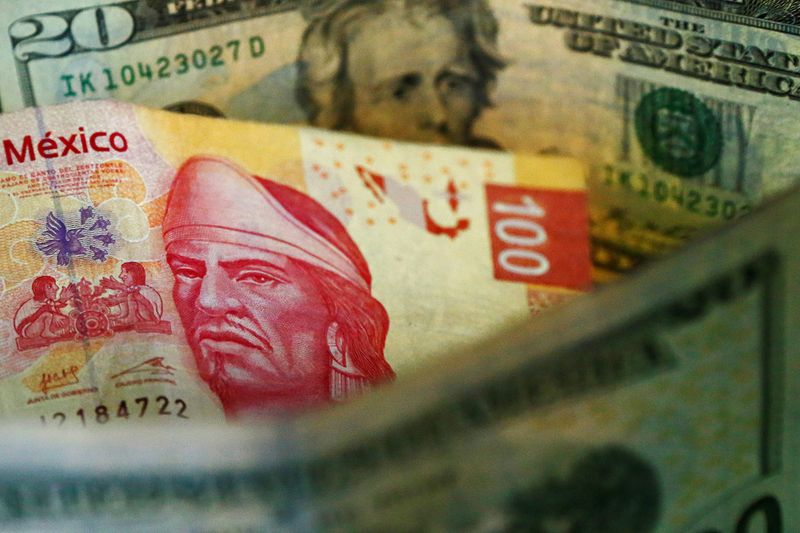Investing.com’s stocks of the week
By Kylie Madry
MEXICO CITY (Reuters) - Mexico brought in close to $5.7 billion in remittances in May, central bank data showed on Monday, breaking a monthly record that analysts cautioned was softened by the recent strength of the peso versus the dollar.
While Mexico records remittances in dollars, as most of the funds come from the United States, "a strong peso hurts remittances," said Goldman Sachs (NYSE:GS) analyst Alberto Ramos.
Mexico's "super peso" is among the top-performing currencies this year, appreciating more than 13% against the U.S. dollar from May 2022 to last May.
With a stronger local currency, recipients of funds from abroad receive fewer pesos when they sell the dollars they were sent.
Given the peso's appreciation against the dollar, when measured in local currency, remittances actually declined 2.2% year-on-year, Ramos said.
Mexican President Andres Manuel Lopez Obrador has touted the economic boost remittances, which largely come from the United States, have brought to the country.
Last year, remittances to Mexico from abroad hit a record high of $58.5 billion, making Mexico the No. 2 remittance-receiving country, just behind India.
Despite the blow from the "super peso," the dollar amount of remittances sent in May rose almost 11% year-on-year.
The May data shows a nearly 14% jump from the previous month, bringing the total of funds raked in this year to $24.67 billion.
That's more than the amount oil and agricultural exports combined have brought the country in the same period, analysts at Mexican brokerage Monex said.
The May boost can partially be attributed to the Mother's Day holiday, analysts at Monex and BBVA (BME:BBVA) said.
"We estimate around 10% of the increase in transactions can be explained by the commemoration," analysts at BBVA said in a note.
The number of transactions in May climbed 7% year-on-year to 14.56 million, with the average amount rising 3% to $391.
"The strength of remittances (reflects) a very solid U.S. labor market and visible wage gains in activities and in skill-levels where Mexican citizens are disproportionately represented," Goldman Sachs' Ramos said.
